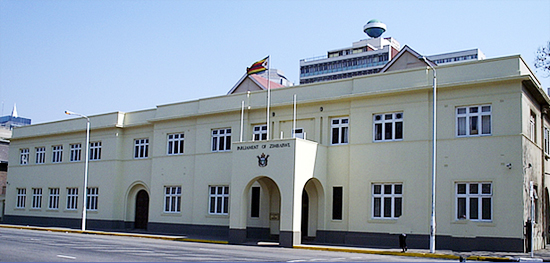The Private Voluntary Organisation (PVO) Amendment Bill has gone through the second reading in Parliament.
If passed into law, it will have far-reaching consequences on the operations of civic society organisations (CSOs) and non-governmental organisations (NGOs).
Going through a second reading means the bill is now under debate by Parliament and will have to go through the Senate and then to the president who has the power to pass it into law.
However, the controversial PVO Bill has been criticised by CSOs as it seeks to further tighten the regulation of NGOs by the government and during the country-wide public consultations held in March by the Parliamentary Portfolio Committee on Public Service, Labour, and Social Welfare, most citizens rejected it.
In the second reading of the PVO Bill last week, Minister of Justice, Parliamentary and Legal Affairs, Ziyambi Ziyambi, said the proposed law was a “very necessary” measure to improve the administration, accountability and transparency of charities in Zimbabwe.
“The legal word for charity in our country, Mr Speaker, is Private Voluntary Organisation (PVO). Under our law, every charity that uses money collected from the public or donated from the foreign Government or foreign agency is required to be registered as a PVO in terms of the Private Voluntary Organisation Act which the Bill before you seeks to amend,” he said.
Ziyambi claimed the PVO Bill does not target law-abiding PVOs but the few who may be tempted to use the guise of charity to carry out undesirable, harmful and even criminal activities.
“For instance, Mr Speaker, we have received communication from the Financial Action Task Force (which is the world’s policemen against money laundering) that some charitable trusts are being misused as a means of channelling funds to fund terrorism and other criminal activities, or to launder the proceeds of criminal activities by, for instance, buying up properties in Zimbabwe and other countries,” he said.
“We are also, as the Government, aware that some so-called charities act in a politically partisan manner by directing money to favoured political parties or candidates at the expense of other political parties or candidates. Partisan assistance using foreign money or money collected from the public under the guise of charity must never be allowed to influence the outcome of national or local elections.”
The justice minister noted the Bill came in to “clean up the space within which PVOs may operate.”
“For some time now, the government has noticed that some so-called charities have completely bypassed the Private Voluntary Organisations Act by forming ‘trusts’ sanctioned by the High Court,” he said.
In an interview with CITE, Nkulumane MP and constitutional law expert, Kucaca Phulu said the PVO Bill has been in parliament for some time now and warned it could be passed as a law.
“By the time I was re-elected, the bill was already going through some processes of Parliament. The bill has now been read for a second time and when a bill has been read for the second time means the substance of the bill is now being debated by parliament. At any time, it may actually be passed into law by parliament,” he said.
Whenever the debate is exhausted or whenever the minister moves that the debate be closed, Phulu noted that meant “at any moment the bill is ready to actually become law.”
“However, in this particular case the justice committee had not yet given its report so I think that when Parliament opens on May 3, 2022 that report is likely to be read and I suspect that before the end of May that bill would have gone through Parliament and would be law,” said the legislator.

